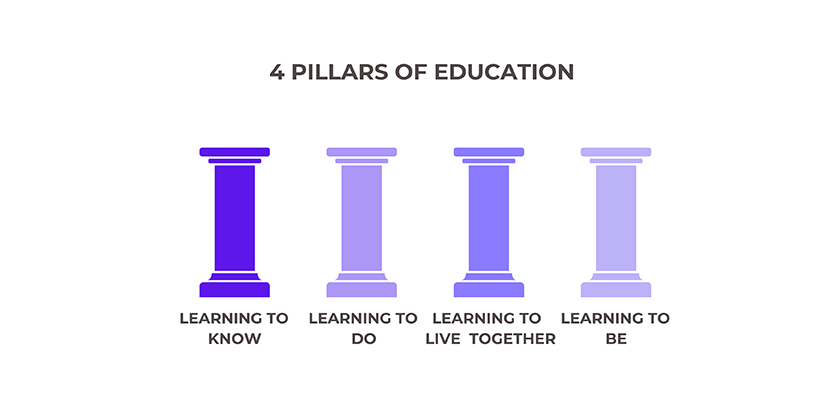WHAT IS NON-FORMAL EDUCATION?
Non-formal education represents a flexible and adaptive approach to learning that occurs outside the structured environment of traditional educational institutions such as schools and universities. It emphasizes experiential learning, practical activities, and social interactions. This type of education can take various forms, including workshops, social projects, educational games, and outdoor activities.
The methods and theories of non-formal education are grounded in the four pillars defined by UNESCO in their 1996 report "Learning: The Treasure Within." These pillars are essential for fostering holistic development and lifelong learning:

1. Learning to Know: This pillar focuses on broadening knowledge and cultivating the ability to learn independently. It encourages curiosity, critical thinking, and the pursuit of understanding, which are vital in adapting to the rapid changes in today’s world.
2. Learning to Do: Emphasizing the acquisition of practical skills and competencies, this pillar prepares individuals to face various challenges in life and work. It promotes hands-on experiences, problem-solving, and the application of knowledge in real-world situations.
3. Learning to Live Together: This pillar stresses the development of social skills and the ability to collaborate effectively with others. It fosters an appreciation of diversity, empathy, and the importance of working together towards common goals.
4. Learning to Be: Focused on the holistic development of the individual, this pillar includes nurturing personal growth, self-awareness, and the ability to make autonomous decisions. It aims to help individuals reach their full potential and contribute positively to society.
FORMAL VS NON-FORMAL EDUCATION
Non-formal education is a learning process that takes place outside traditional educational institutions such as schools and universities. It is an approach based on experiences, practical activities, and social interactions. Non-formal education can take various forms, including workshops, social projects, educational games, and outdoor activities.
Formal education is an organized process of teaching and learning that takes place in educational institutions such as schools, colleges, and universities. It is characterized by a set curriculum, structured time frames, and formal assessments. In formal education, the emphasis is on imparting theoretical knowledge and developing academic skills. This process is typically supervised by qualified teachers and professors.| Aspect | Formal Education | Non-Formal Education |
|---|---|---|
| Setting | Schools, colleges, and universities | Workshops, social projects, educational games, outdoor activities |
| Structure | Rigid and organized | Flexible and adaptable |
| Curriculum | Set curriculum defined by educational authorities | No fixed curriculum, often tailored to participants' needs |
| Time Frame | Structured time frames (e.g., semesters, school years) | Variable, often dependent on the specific program or activity |
| Assessment | Formal assessments, exams, and certifications | Informal assessments, feedback, and self-evaluation |
| Focus | Theoretical knowledge and academic skills | Practical skills, experiential learning, and social interaction |
| Instructors | Qualified teachers and professors | Facilitators, mentors, and community leaders |
| Learning Approach | Teacher-centered, lecture-based | Learner-centered, interactive and participatory |
| Goal | Academic achievement and certification | Personal development, skill acquisition, and community engagement |